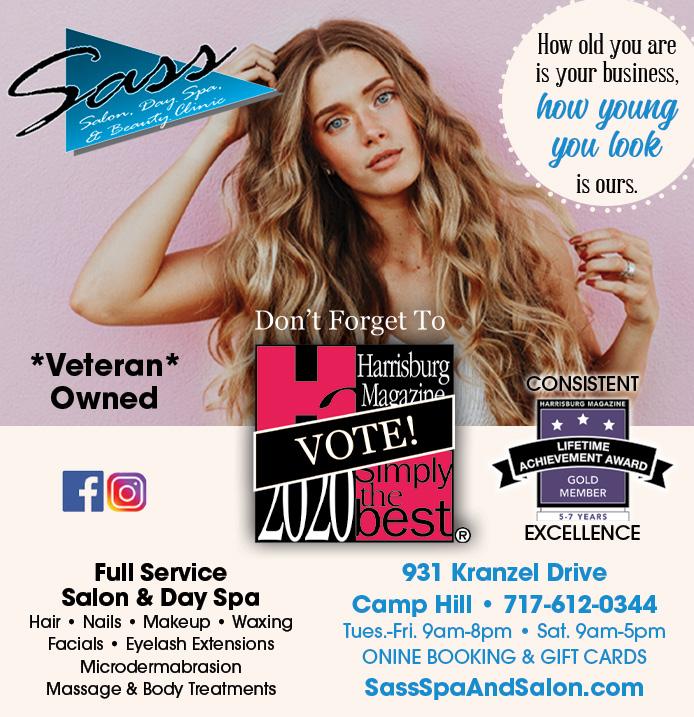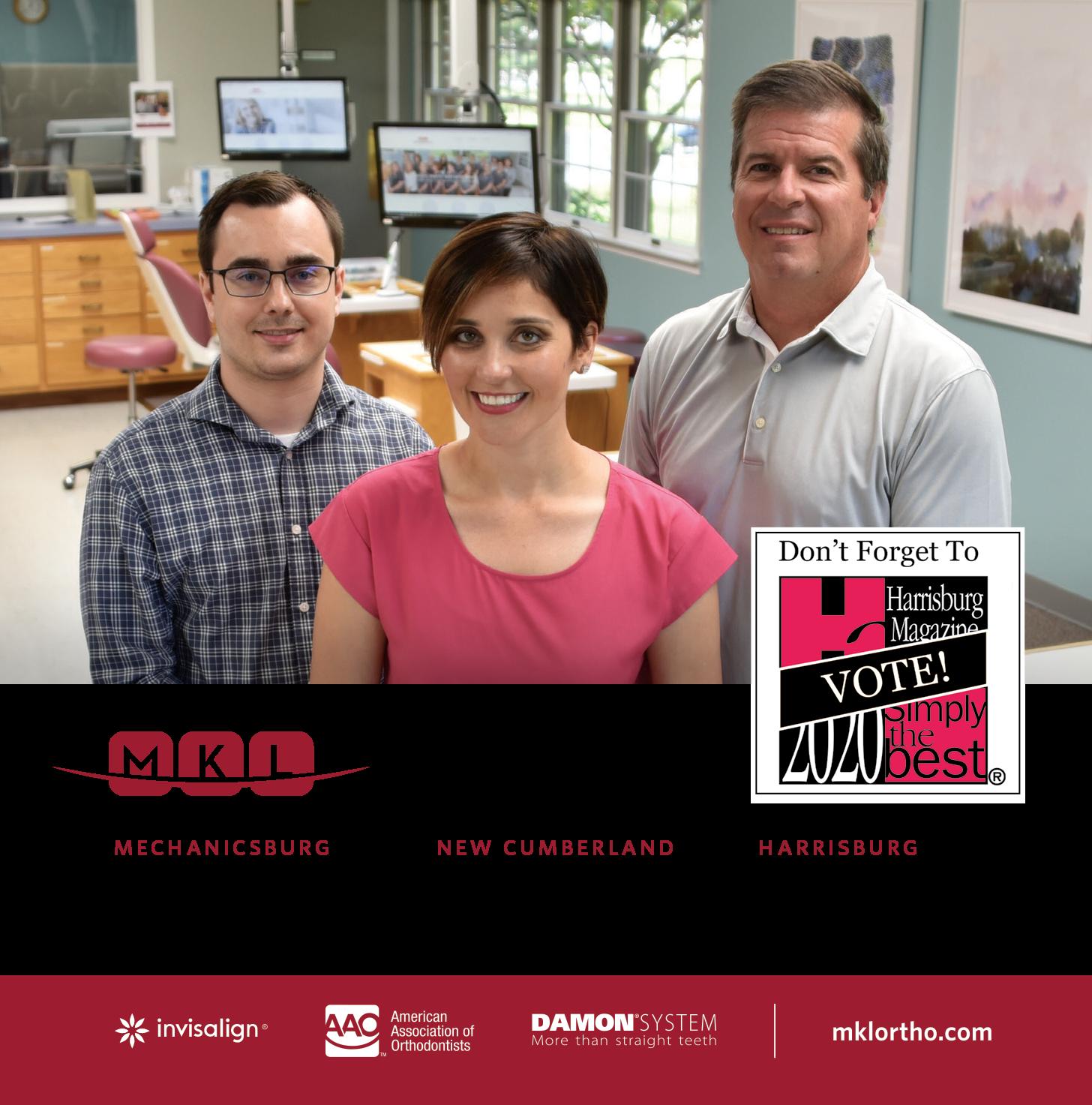
17 minute read
MOMS ON A MISSION
BY DIANE WHITE MCNAUGHTON PHOTOS COURTESY OF MOMS ON A MISSION MOMS ON A MISSION
Swiss psychiatrist Elisabeth Kubler-Ross famously outlined the five stages of grief. Five heartbroken moms in central Pennsylvania have rewritten the script and added a sixth stage to that surreal emotional journey: action.
Grief has been called “love with no place to go.” But these supermoms have found life-transforming places to send all their motherly devotion. Because of those transcendent maternal bonds, they have carried forth cherished memories of their beloved children, prevented pain for others, and brought abiding light and inspiration to their dark corner of the world.
Julie Walker, Suzanne Sheaffer, Wendy Loranzo, and Erin Marsicano have each embarked on a personal crusade to prevent others from suffering their unspeakable losses.
Sudden cardiac arrest, pediatric cancer, addiction, military loss – all of these causes have been thrust into the state and local spotlight, triggering legislative action, support services, fundraising, and a legacy that lives on.
All because these grieving mothers refused to drown in despair and let their children’s stories die.
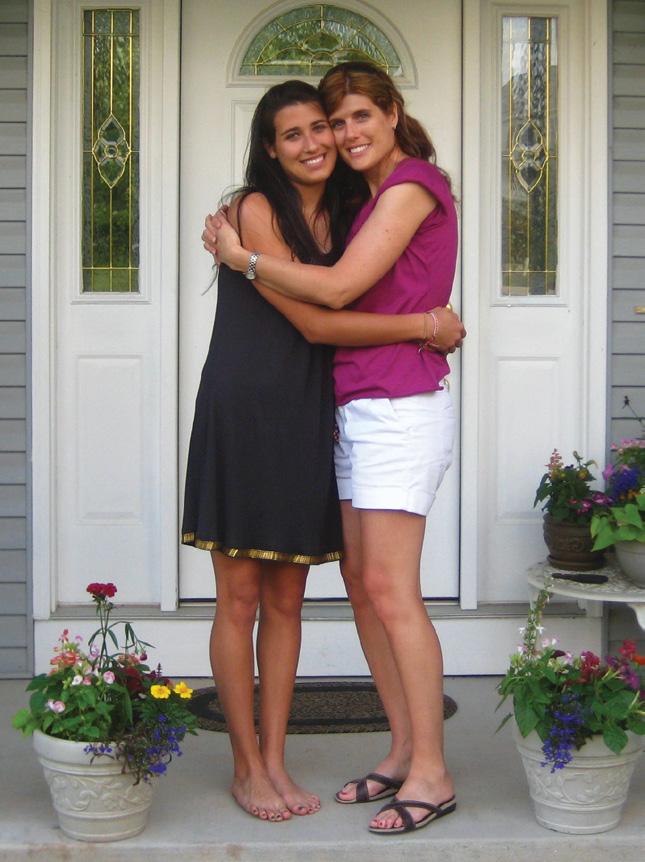
JULIE WALKER
Julie Walker’s older daughter Peyton, a master storyteller who was “the epicenter of our family, truly,” passed away on Nov. 2, 2013, at the age of 19. Peyton’s energy was cut short after she suffered a Sudden Cardiac Arrest (SCA) while studying to become a Physician Assistant at King’s College in Wilkes-Barre. A Trinity High School graduate, Peyton had a genetic heart condition known as hypertrophic cardiomyopathy.
It wasn’t long after Peyton’s passing that her mom, a professional meeting and events planner, started urging parents to test their student athletes for heart conditions. Her effort became a full-blown media, legislative and public awareness effort. Soon, she was orchestrating jam-packed press conferences in the Capitol Rotunda, pounding the russet brick floors of the state House and Senate, hosting fundraisers attracting hundreds and raising tens of thousands, and hosting cardiac screenings with a spirited team of volunteers in high schools across the state.
Thanks to her intense lobbying efforts, her state senator, Mike Regan of York and Cumberland Counties, introduced legislation known as “Peyton’s Law.”
Her foundation advocates for the use of electrocardiogram (EKG) testing to screen for underlying electrical issues in the heart that can lead to SCA, and conducts free EKG screening events at schools across Pennsylvania. To date they have screened several thousand students.
Senate Bill 836 would require that information be shared with student athletes regarding EKGs and that they be notified of their option to request an EKG in addition to the standard physical examination. The bill passed the Senate unanimously in January.
Lobbying was not something Julie ever expected to add to her professional playbook. Julie says that five weeks after losing Peyton, she opened the bag of clothes that the ER nurses had handed to her, pulled out the shirt that Peyton was wearing on that dreaded day, and immediately felt called to action.
“Emblazoned on the shirt were the words, “What we do for ourselves dies with us. What we do for others and the world remains and is immortal.”
Because Peyton wanted to work in health care, establishing the Peyton Walker Foundation and providing lifesaving services to students and families is “the perfect tribute to her life,” Julie says.
“I truly believe our family was chosen— and that I, specifically, was chosen— for this life mission. At times, it absolutely feels like a burden,” Julie says. “This is by far the most difficult, draining, exhausting work I have ever done.”
While she could just immerse herself into her already-stressful career, she says, “I do feel that this is my calling – there is work to be done, lives to be saved, and heartache to be prevented.”
“My motivation is to prevent one mom from this hellish nightmare of surviving child loss.”
“Never in my lifetime did I expect to do live TV interviews, speak to thousands of people at a conference or become a resource to grieving parents. It’s this maternal obligation that I feel every day – I cannot let Peyton’s life be meaningless or nonimpactful. I believe all of this was part of her life plan.”
She advises all new moms to “Live your life with no regrets. There is no do-over. You’ve got one shot to live your best life with your child/children. And be grateful for those tiny moments – the ‘I love you’s’ – the sweet kisses, everything.”
To those burdened with grief, she says: “When grief hits, roll with it. Let it run its course. Have hope and believe that things will get different, not necessarily better. Just different. Get up every day—get dressed, get moving forward. Living your life is key to your survival. Dig deep to find your resilience. You have more fight in you than you ever imagined possible.”
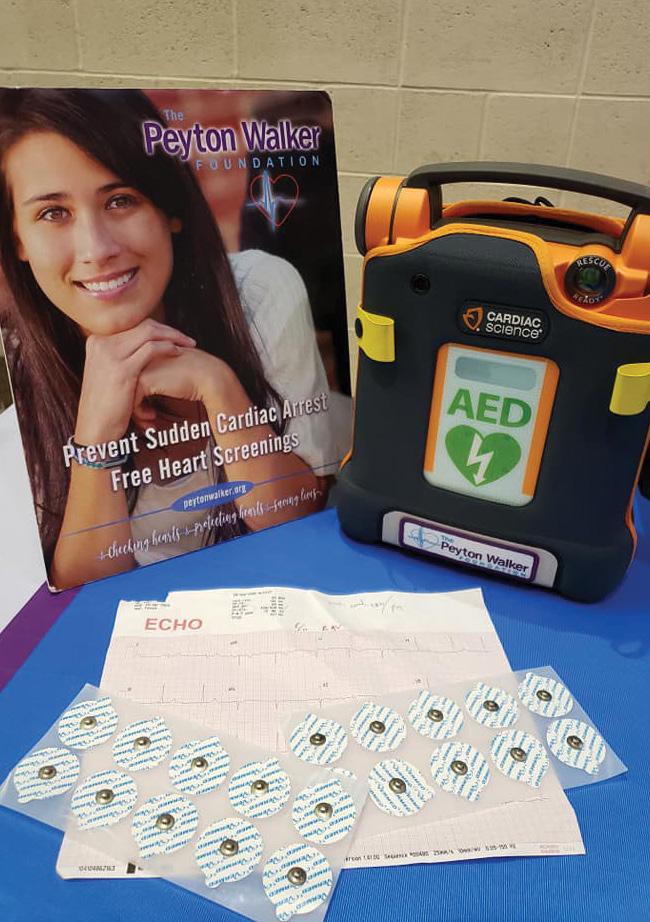


SUZANNE SHEAFFER
Suzanne Sheaffer of Susquehanna Twp. has lived a parent’s nightmare— twice. She lost two children in the span of 22 months.
Her son Billy Trapnell, a paramedic and firefighter serving in the U.S. Coast Guard, died Dec. 30, 2013. She woke up at 1:12 a.m. to see the reflected glare of red and blue lights from her front door. At her door, the “officer’s face was etched with pain,” she recalls.
The officer says, “William has passed,” which immediately perplexed her and punched her in the gut. William Trapnell, III was her exhusband—William, IV, was her son. She thought surely the news must have been about her ex-husband. She was wrong. Adding to the shock was that no one knew quite what had happened to Billy. He had gone into cardiac arrest in an ambulance at the age of 28.
She had just seen him days before. He says he wasn’t feeling right, which was odd for a healthy young man who had served in both Iraq and Afghanistan before the Coast Guard, and who was aiming to get into the Massachusetts State Police.
“That (night) put us onto a whirlwind like no tomorrow,” Sheaffer says.
The shock was augmented by incredible hurt. She was not able to escort her son back home, like other Gold Star moms.
“We can’t let this happen to anyone else,” she says. “I felt like we didn’t matter.”
She learned that the “Lieutenant of Casualty Matters,” situated organizationally under the federal Department of Homeland Security, had no budget for Gold Star mothers. In fact, there was no formal Gold Star program at all. Suzanne saw a need and stepped right in. She created a Gold Star program for the Coast Guard.
“I don’t identify problems without offMarsicanog a solution,” she says.
As a forensic nurse on her way to a Ph.D., and as someone who lost her own dad as a young girl, Sheaffer says she deals with death and dying all the time.
She offered to be the volunteer coordinator for the Coast Guard’s Gold Star moms. Within six months, a grandmother called her in the middle of night, sobbing.
“We lost our Coastie,” the grandmother sobbed. “How do you do this?”
Suzanne spent the night on the phone with the family. That call was another impetus for the brass to go live.
The director told her: “Do whatever you want as long as it’s free.”
Fast forward seven years. Soon Suzanne will coordinate the fifth Coast Guard football game in September. The Coast Guard is now the only service academy that plays such a game.
“We call it our family reunion.” Twenty rooms are booked at a local hotel. Seeing the bonds that form, she says, “It’s beautiful.”
She has also helped to organize the Central Dauphin High School Gold Star game, partnMarsicanog with Coach Glen McNamee. She looks forward to getting “80 stinky boy hugs,” after the football players practice for two hours and then embrace their honorary families.
Sheaffer has also assembled “Quilting Coastie Mamas” who send
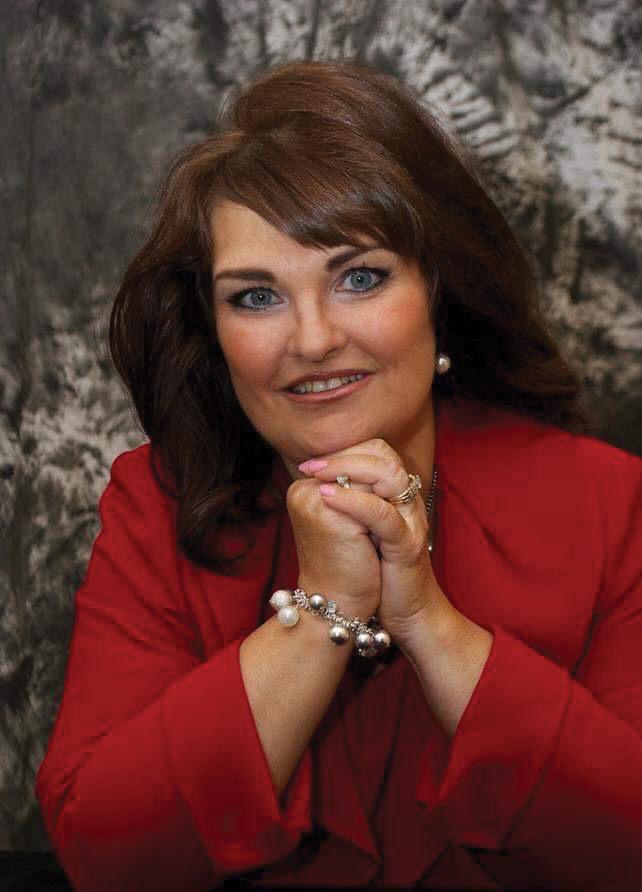
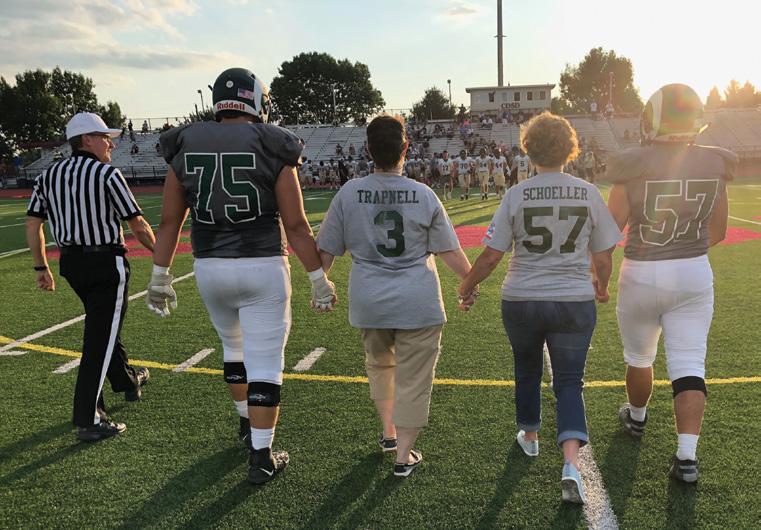
hand-knit quilts to families, “all by tapping into the love and support of our own service branch.”
She found Coast Guard families who lost their “Coastie,” back to 2009. She helps train the Guard on dealing with casualties, and loves seeing other families heal.
“There are no words to put to that. It wasn’t magical,” Sheaffer says. “I’m a nurse, we try to make it better, and when we can’t, we support the bereaved.”
Grief became a one-two punch for her. Twentytwo months before losing Billy, her daughter Sarah passed away in ManorCare in Camp Hill, at the age of 24, after suffMarsicanog from an aggressive autoimmune disease. It was only 18 months from Sarah’s diagnosis to her death.
After removing her from oxygen, they stayed with Sarah for 15 hours as life slipped away.
“It makes you live your life differently. You are not Number 1 anymore. You treat others the way you want to be treated first. I always say, ‘Sarah taught us how to live and she taught us how to die.’”
At the Central Dauphin Gold Star game, launched six years ago, the football players wear the name of a fallen hero on the back of their jerseys. The kids meet and greet the hero player families, present flowers, share a meal, and build a bond with them.
One of the CD football players, Harrison Fenstermacher, was killed in a motorcycle accident on Gold Star weekend. The Gold Star Families game was his favorite game, so Sheaffer began working with another “mom on a mission,” Harrison’s mom, Tina, to honor 15 fallen families, plus one.
“Hug your son because you never know if it’s your last hug,” Sheaffer says. “You never want your child to be forgotten. Our sons are their sons.” Despite her losses, she does not allow herself to drown in self-pity. “I am the luckiest mom in the world to have raised a hero.”
WENDY LORANZO
On Sunday, March 19 at 4 a.m.., Wendy Loranzo received a phone call from her ex-husband Harry. She couldn’t understand a word he was saying.
Finally, his message emerged: “You need to get down here.” She says, “What’s wrong?” He says, “Liz overdosed.” She asked, “Is she breathing?” And he replied, “No.”
On the eight-minute drive to Harry’s house, Loranzo kept praying to God to save her one and only child, a talented beautician who was known for her ever-changing hairstyles and colors—a rainbow Wendy affectionately called “the 50 shades of Liz.” As she approached Harry’s house, she saw flashing red lights from about 8 or 10 emergency vehicles, and she knew the nightmare was real.
EMTs wheeled Liz out of her bedroom and took her to Hershey Medical Center. She didn’t make it.
Days later, they learned that Liz died of heroin laced with Fentanyl. Loranzo didn’t know what Fentanyl was, let alone how to spell it.
Over 900 people attended the visitation and funeral services for Liz. Loranzo decided not the hide her cause of death. She decided to use this awful moment in time to educate.
She explained that Fentanyl causes 13 deaths a day in Pennsylvania and over 50 deaths a day in the United States. Fentanyl is available legally with a prescription and sold illegally and inexpensively on the streets. It's 50-80 times stronger than pure heroin.
Through Facebook, Loranzo was contacted by WHP-TV 21; ABCTV 27, PennLive and WGAL-TV 8, all eager to speak with her about Liz. The PennLive article was shared over 5,000 times in three days. In the days following the news coverage, Loranzo was literally inundated by people on Facebook Messenger and text messages, sharing their own addiction struggles or those of their loved ones.
To help save lives, Loranzo established the Elizabeth Loranzo iCare Foundation, to promote public awareness and education, and to reach out to those in need from addiction, depression, anxiety, alcoholism and other social disorders. She also assists parents and those who have lost loved ones from addiction in their time of need.
CARE stands for “Compassion, Advocacy, Recovery and Education.” They have received hundreds of outreaches for help, and have linked them to their county’s Drug and Alcohol Department for a full assessment, rehab placement or other services.
Loranzo works with area counties, municipalities, and groups to speak on educational panels to share Liz’s story, and participates in local school district drug awareness days.
She has been able to assist with funding for vivitrol and suboxone medication-assisted treatments for individuals in recovery. She also used billboard advertising in Harrisburg to promote public awareness and advertise the 1-800 Get-Help phone number. They also provide financial assistance to families for funeral services for a child tragically lost to a drug overdose.
Loranzo says the creation of the foundation came to her two days after Liz was buried.
“It helped to keep me busy so I didn't really have time to think about my loss and I knew it was something Liz would have wanted me to do. She would not have wanted me to sit around and cry and be sad, she would have wanted me to do something. She was led into addiction by trying to help someone out of it, so it was only a natural reaction for me to start the foundation in her honor and memory.”
Loranzo says, “We don't know how strong we are until we are put in a situation that changes us forever. I would tell people I am living a different life in the same body. I also had to look at my then 9-month old grandson who one day is going to be old enough to understand what happened to his mother so I needed to try to find something positive in her death. I'm not sure I would have been able to start the foundation if it would not have been for my grandson. He didn't deserve to lose his mother.”
She advises new mothers: “There is no manual, we will all make mistakes. It's what you do after the mistake that's important, learn from it, and love unconditionally. And ask God every day to carry your burdens.”
“I wish I knew five years ago all the things I have learned about drug addiction since my daughter passed away.”
“I know that Liz is by my side every day and when I am faced with a question or challenge, I ask myself, ‘What would Liz want me to do?’ - and I get my answer.”



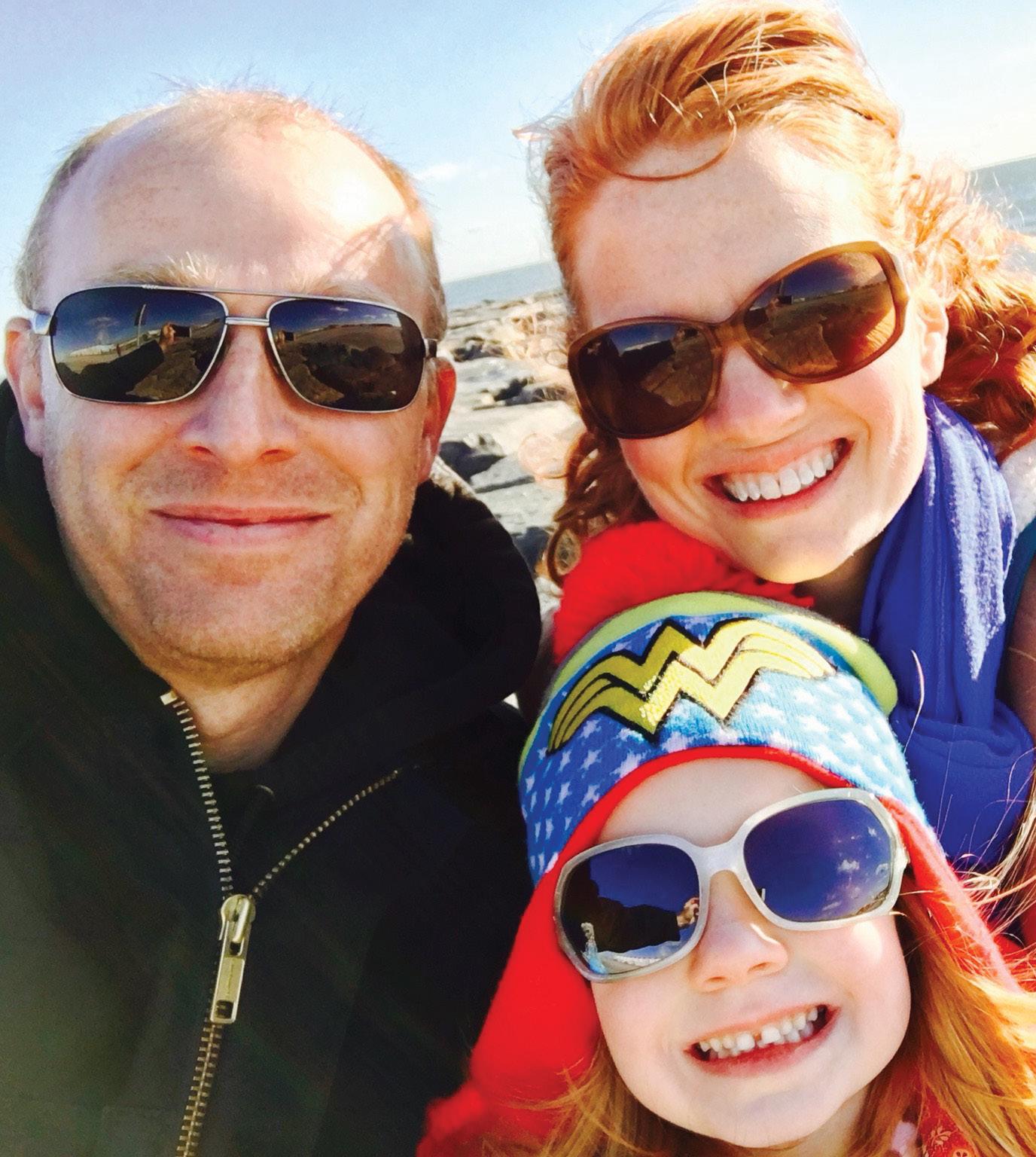
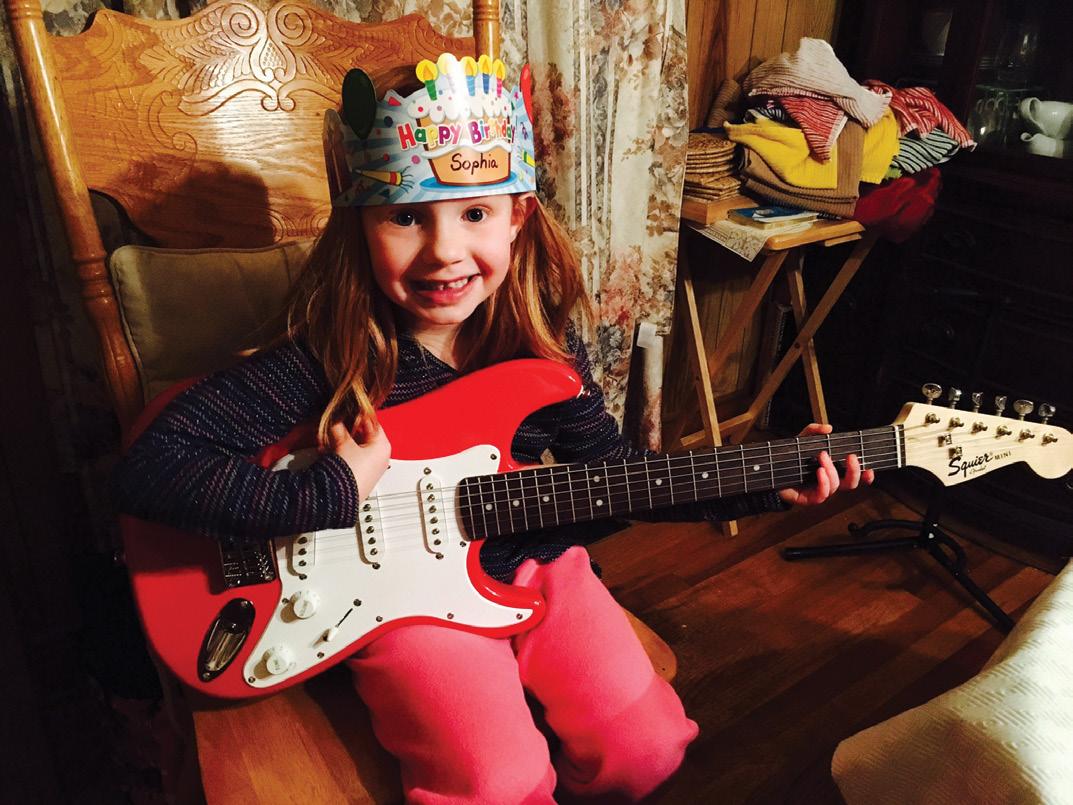
ERIN MARSICANO
Sophia Jane Marsicano was born on March 7, 2011 and lived six vibrant years of life, as a sassy, spunky, joyful redhead. She passed away on November 15, 2017, after a six-month battle with a form of brain and spinal cancer that her mom Marsicano says “was as rare as she was.”
Marsicano and her husband Joe are now a Four Diamonds Family and have made donating to and raising money for Four Diamonds a top priority.
Four Diamonds had covered all medical bills not covered by insurance and provided the Marsicanos with peace of mind during an already difficult time.
Marsicano has spoken at Cumberland Valley’s Mini-THON twice to share Sophia’s story as part of their efforts to raise money for Four Diamonds.
Ronald McDonald House of Central PA is their other top priority for giving because Marsicano’s mom was able to stay there the entire five months Marsicano and Joe stayed in the hospital with Sophia. Aside from continued financial donations, they collected
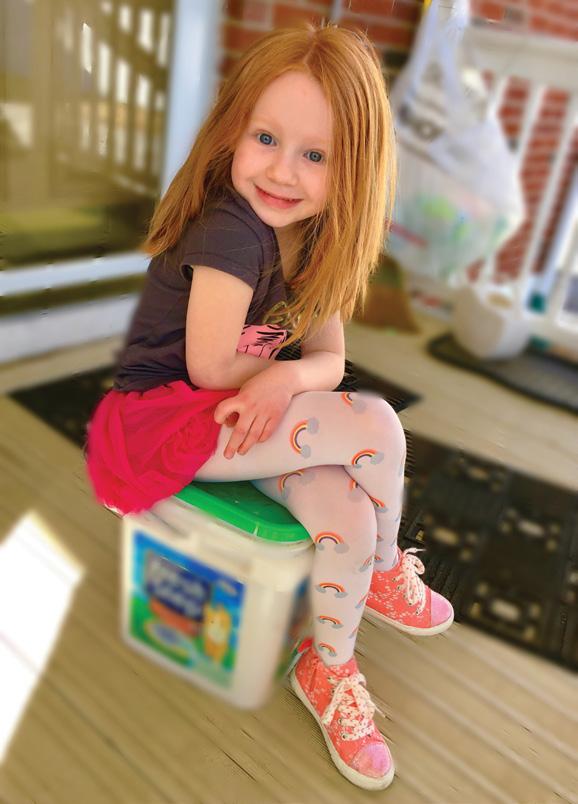
items from their Wish List at Sophia’s Celebration of Life, and she has been part of a group of women she met through a new mom support group when Sophia was a baby that has cooked an annual meal at RMH in Sophia’s memory for the last three years.
They also started a Summer Camp Scholarship at DreamWrights Youth and Family Theatre in York; donated books in her memory on her eighth birthday to several places like Kindergarten Academy, and her preschool in Mechanicsburg; and having learned the Cumberland Valley middle schools were in need of new copies of “Drums, Girls, and Dangerous Pie” - a book they use to teach about pediatric cancer-- she put a call out to friends and family via Facebook, and within 24 hours had 60 books pledged. Each copy has its own bookplate noting that it was donated in Sophia’s memory and includes the person’s name who donated it and where they live.
What Marsicano would call “deep, raw grief” was something she experienced while they were in the hospital because she knew fairly early on that survival was not likely.
For five months they watched their vibrant six-year-old deteriorate from the effects of a very rare form of cancer in her brain and migrate down her spine. Between that and chemo, radiation, pain medications, and steroids, the majority of those five months were spent with a child who couldn’t walk, speak, or see, and ultimately, who couldn’t even communicate with a nod or a shake of the head.
Of course, Marsicano grieved when they came home after Sophia passed away, but she had mentally prepared to come out of the hospital wanting to “Rise Strong” - a playlist she had created for herself that she still turns to on bad days.
Marsicano says there is no “final stage” of grief—it lasts for the rest of one’s life.
“For me, sometimes that is an ugly cry, sometimes it is a pang of longing or jealousy when seeing other moms with their little ones, sometimes it is simply wanting to share life’s experiences with the little lady, and sometimes it is just wanting to hear her voice or to get a big ‘Mommy, you’re home!’ greeting.”
“My action is driven not by the passing of grief but by wanting to give back to those that have done so much for us and by simply wanting to spread Sophia’s joy and memory.”
“We had hundreds—maybe thousands—of people who thought of us, prayed for us, sent us care packages, opened their wallets for us, mailed cards to us, and quite simply, worried for us and about us during our darkest time. People waited in line for two hours at Sophia’s Celebration of Life just to be turned away before getting to speak to us.”
“I believe all mothers—whether on a mission or not –simply want to raise children who will be good humans who themselves may change the world, in big or small ways,” Marsicano says. “But for those mothers who have lost a child or who are advocating for a child with particular needs, we are the voice for our kids, and we are driven to still ensure our good humans are making an impact in the world in one way or another.”
Marsicano remembers that one of Sophia’s favorite things was taking pictures in the big red circle outside Target. They always took the time to stop to do this, and “Those photos bring back some of the
best memories of how she and I would just live in the moment and not be rushing our lives away.”
To the grieving, she says, “The sun will rise and so will you.” Transcending the dark days honors your lost loved ones.
“I have intentionally not staked a place as a pediatric cancer warrior because just as I do not wish to have my grief or the loss of Sophia define me, I do not wish for pediatric cancer to define her. It may be what ultimately took her from us, but it isn’t what made her the unique, spunky redhead little lady that she was.” 7
